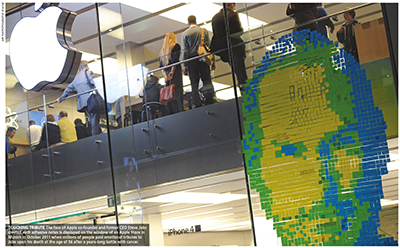CORPORATE LEADERSHIP
WANTED: NEW AGE LEADERS
The modus operandi of leading organisations is changing across the world – Sanjeewaka Kulathunga
The term ‘leader’ originated from the Old English word lædan, which means ‘to guide.’ However, leadership has been evolving in the digital age from a centralised authority to decentralised delegation that has shared accountability and responsibility.
 And with an increased global demand for equal opportunities for education as a fundamental human right, employees in the postmodern Information Age have become more knowledgeable, and capable of being responsible and accountable in the workplace.
And with an increased global demand for equal opportunities for education as a fundamental human right, employees in the postmodern Information Age have become more knowledgeable, and capable of being responsible and accountable in the workplace.
The transition from an industrial economy to a knowledge-based system has been speeded up by the rapid dissemination of information and communication technologies.
As a result, both existing and prospective employees in the global labour market are armed with invaluable skills and competencies. They don’t need to be supervised directly or indirectly as in master-slave relationships of the past.
Views of postmodern leadership are closely aligned with the principles of subjective values. Contemporary postmodern corporate cultures acknowledge the multiplicity of subjective realities in relation to leadership and the loss of absolute authority as seen in some feudal economies.
Since there are multiple voices and diverse cultural meanings in different industrial sectors, dependence on autocratic leadership wouldn’t be effective in strategic decision making.
Currently, corporate leadership is a synergetic process with the ability to influence all interested parties to achieve mutual objectives through a holistic approach.
Leaders are not born; instead, they emerge when unpredictable events such as political, social, economic and technological transitions, as well as turmoil, take place in dynamic environments. At present, corporate leadership is nothing but the ability to adapt to changes in the business environment with the right vision to plan, organise, direct and control both animate and inanimate resources efficiently and effectively.
As the business world is evolving from the industrial era to the digital age, the dimensions of leadership styles are also prone to change. New leadership styles have been touted as communicators and co-creators.
They’re more practical in a knowledge economy that’s backed by digitisation because they illustrate how to replace the existing hierarchical and rigid top-down patterns in decision-making processes with interlinked diverse organisational structures.
As a synergistic team, the role of postmodern corporate leaders should be to respond and adapt to dynamic internal and external stimuli, in both local and global business environments.
Though leadership originated from the top of the organisational structure, it should be sustained similar to the lighting of hundreds of candles using one main candle.
Leadership has to be a transmittable phenomenon that creates more leaders through a multiplier effect. They should be enabled to take ownership of their responsibilities so that the companies they lead can ultimately gain a competitive edge in the corporate world.
Apple, Microsoft and Google have enjoyed a synergetic blend of organisational leadership provided by famous figures – such as Steve Jobs, Bill Gates and Larry Page until the recent past. Today, new corporate leaders have been appointed to the helm to lead these global tech giants and they’re performing excellently, similar to the founders of the companies.
Leadership shouldn’t revolve around personalities but evolve as a quality that circulates in the hearts and minds of both managerial and non-managerial staff in an organisation.
Due to digital disruption, organisational structures are no longer black or white with distinct shapes. Accordingly, the shared leadership style should be more applicable since it is an open, symbiotic and influential way to interlink with cross-functional and flexible forms of corporate decision making on a real-time basis.
Moreover, shared leadership focusses on paradigm shifts from autocratic styles to unlimited team spirit by co-creating sustainable outcomes at the end. With regard to co-creative leadership, Air BnB and Uber could be cited as gig economy firms, which ensure they perform and create market value together – and where their leaders also actively engage with customers, employees and other stakeholders in the industry.
As communicators, corporate leaders have to engage in articulating their vision and mission to stakeholders, as well as employees, by bringing them on board and gaining their support in the age of digitisation.
In the upcoming conceptual age, leaders who are competing in a fast-moving business environment should be more capable of adapting to changes with the ability to shift from one specific leadership style to another.




